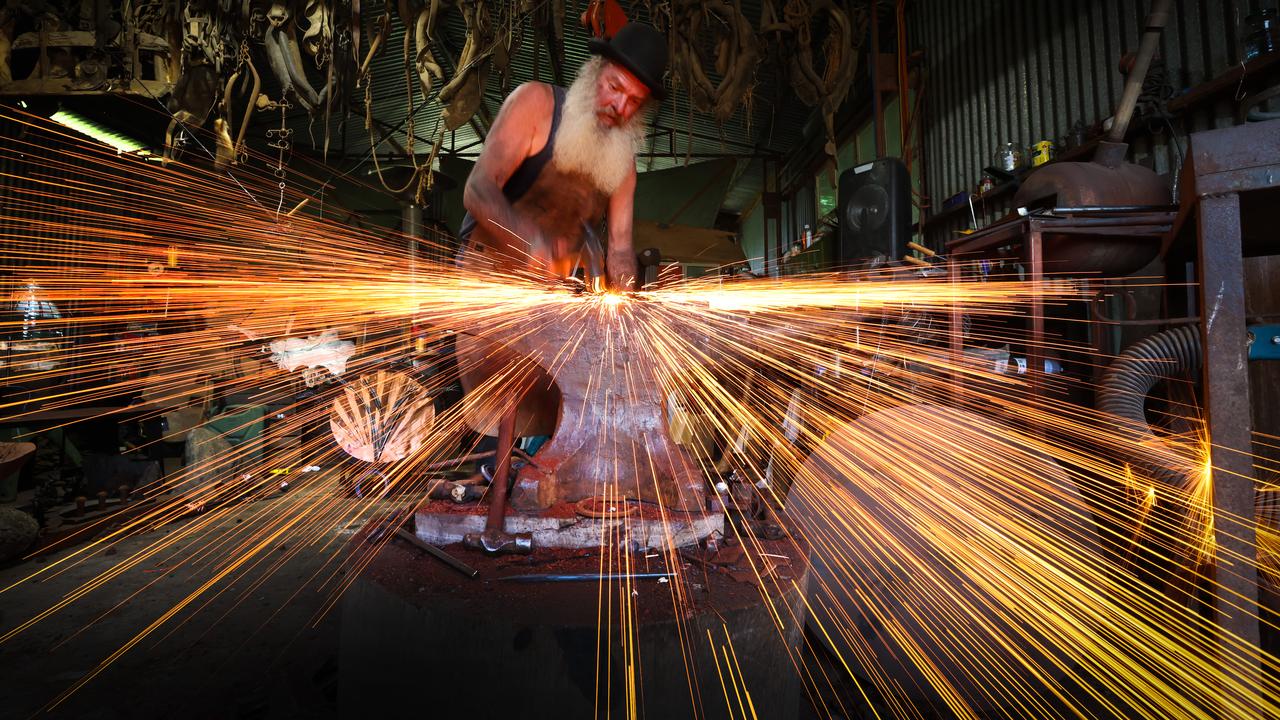Late last year I wrote about the perspective of life from the edge after interviewing my mother on the occasion of her 95th birthday. She was thrilled with the piece, which, I think, captured the can-do stoicism of her generation. Just three weeks later, Mum passed away peacefully in her sleep.
There’s a shock when your mother dies, even later in life when you know it’s looming. But I cannot complain. I have 60 years of memories, which is more than most. And she passed precisely as she had wanted to: in her bed, in her home, on her terms. I delivered the eulogy, which wasn’t as hard as I had thought. She wouldn’t have wanted sadness. We played her favourite song from the 1940s, Little Brown Jug.
Mum was a person of energy and positivity. She thought Australia was the best country in the world. Her family and her faith were the pivots around which her life revolved. I never saw her cry. I never heard her swear, not even in the mildest of forms. She would never say something like “Oh my God” because, as you might have guessed, that would take the Lord’s name in vain.
She never pressed her views on others. She prayed every day. She was self-deprecating about it, saying: “It may be just the power of positive thinking, but it works for me.” Last year she told me she prayed up to three rosaries every day, and had been doing so for 85 years. I was shocked. I had thought a few Hail Marys, perhaps, but multiple sets of 50-plus prayers repeated daily for decades? This is the commitment of a Tibetan monk. But it had an effect. She radiated an inner strength. I knew it from the age of four; all our family knew it. She was so strong.
I popped in to see her in Geelong just three days before she died. She gave me Christmas presents for her grandkids in Melbourne. The next day she rang: had the presents been picked up? It was a pleasant but sort of perfunctory call. It’s silly to think this way, I know, but I wish I could have known that this was to be our last conversation.
Time seems to slow down in times of shock or grief; you pick apart and reconstruct interactions. Just days before her death she had spoken to her brother, to her sister, to her grandkids, to her niece. The week she died was like any other in her life. And then she was gone. Death really does come like a thief in the night.
Years ago I asked my parents how they’d heard that their parents had died. Mum, just 24 at the time, was in a Melbourne hospital car park when an aunty told her that her father had died. Dad said his mother simply collapsed in an aged care home in Warrnambool. We carry the finalities of loved ones’ lives throughout our lives.
I am thankful that I have many happy memories of both my parents, and that their passing, though sad, was not unexpected. I cannot imagine the pain of carrying less happy memories, let alone the burden of a traumatic death, throughout life. It is hard to die well, I suspect; to pass peacefully, to leave without causing undue pain to others. In the meantime I will hold on to the memories, to the life lessons, taught to me by my mother. However I don’t pray, and I do swear a bit at the lower end of the spectrum.
In November I asked her if she was concerned about the end of life, about dying. She scoffed: “I’m ready. I’m ready.” I think she knew her time was coming. She was indeed ready. But those who loved her – we weren’t quite as ready. Not yet. Just one more chat. Just one more cup of tea.



